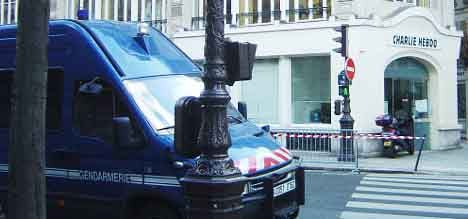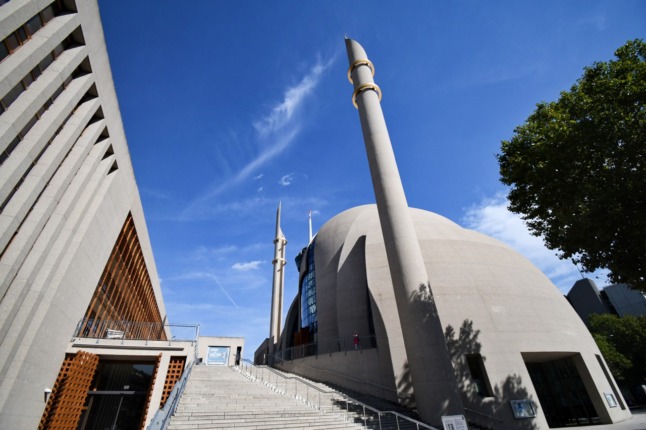The cover of Charlie Hebdo shows a Muslim in a wheelchair being pushed by an Orthodox Jew under the title "Intouchables 2", referring to an award-winning French film about a poor black man who helps an aristocratic quadriplegic.
Another cartoon on the back page of the weekly magazine show a naked turbaned Mohammed exposing his posterior to a film director, a scene inspired by a 1963 film starring French film star Brigitte Bardot.
Charlie Hebdo's website crashed on Wednesday after being bombarded with comments that ranged from hate mail to approbation.
The magazine is no stranger to controversy over issues relating to Islam.
Last year it published an edition "guest-edited" by the Prophet Mohammed that it called Sharia Hebdo. The magazine's offices in Paris were subsequently
fire-bombed.
French Prime Minister Jean-Marc Ayrault said anyone offended by cartoons could take the matter to the courts after expressing his "disapproval of all excesses".
But he emphasised France's tradition of free speech. "We are in a country where freedom of expression is guaranteed, including the freedom to caricature," he said on RTL radio.
"If people really feel offended in their beliefs and think there has been an infringement of the law — and we are in a state where laws must be totally respected — they can go to court," Ayrault said.
He also said a request to hold a demonstration in Paris against the controversial US-made anti-Islam film "Innocence of Muslims" which has sparked furious protests across the Muslim world would be refused.
Charlie Hebdo's latest move was greeted with immediate calls from political and religious leaders for the media to act responsibly and avoid inflaming the current situation.
The magazine's editor, originally a cartoonist who uses the name Charb, denied he was being deliberately provocative at a delicate time.
"The freedom of the press, is that a provocation?" he said. "I'm not asking strict Muslims to read Charlie Hebdo, just like I wouldn't go to a mosque to listen to speeches that go against everything I believe."
Dalil Boubakeur, the senior cleric at Paris's biggest mosque, appealed for France's four million Muslims to remain calm.
"It is with astonishment, sadness and concern that I have learned that this publication is risking increasing the current outrage across the Muslim world," he said.
"I would appeal to them not to pour oil on the fire."
France's Muslim Council, the community's main representative body, also appealed for calm in the face of "this new act of Islamophobia".



 Please whitelist us to continue reading.
Please whitelist us to continue reading.
Member comments